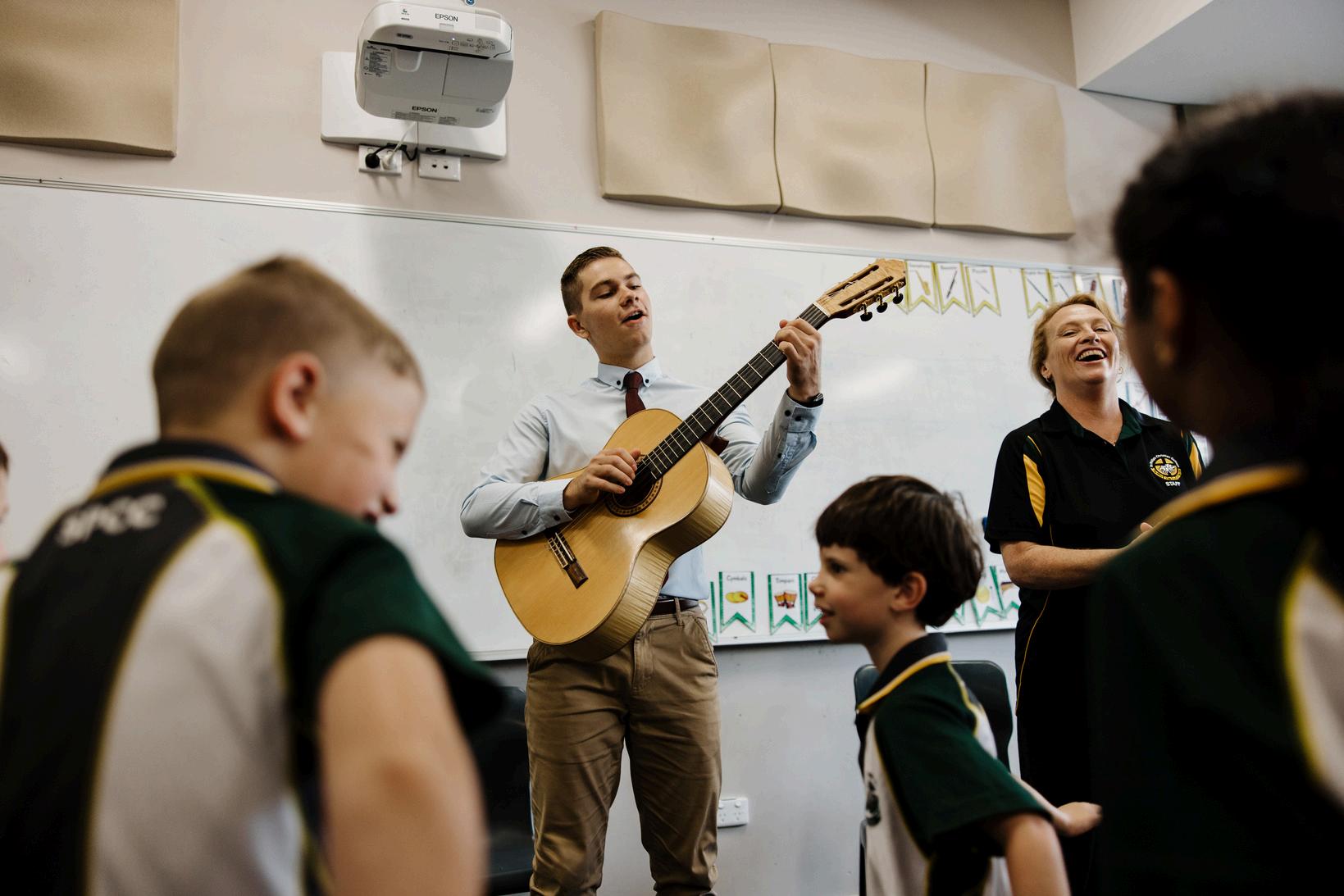


ST PHILIP’S TEACHING SCHOOL




ST PHILIP’S TEACHING SCHOOL
TERM 2, 2025


T a b l e o f C o n t e n t s



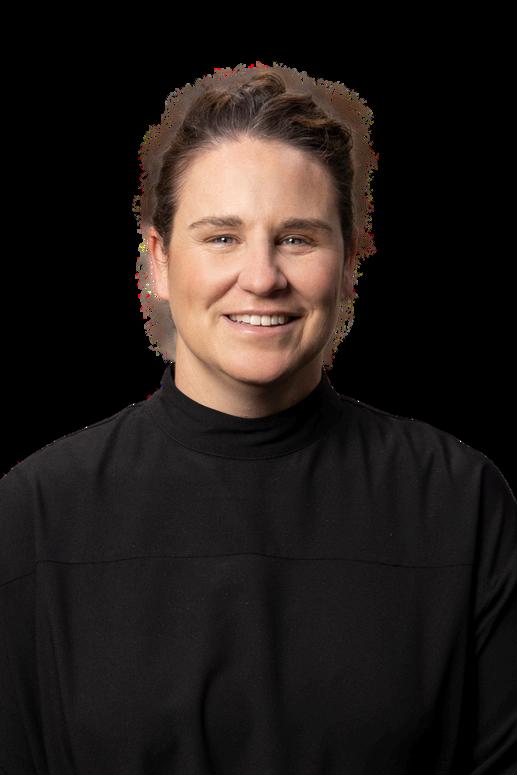
As we gather once again through the pages of The Third Space, I am filled with gratitude for the continued evidence of God's goodness at work throughout our St Philip's Teaching School village and beyond. This second edition arrives as a testament to the faithfulness we have witnessed in classrooms, Zoom lecture rooms, symposiums and hearts across our community. Unity is at the forefront of our minds, and this edition sees three of our partner schools share part of their story in some way.
Since our inaugural publication, we have seen the truth of Philippians 1:6 continue to unfold: "Being confident of this, that he who began a good work in you will carry it on to completion until the day of Christ Jesus." The stories you will read in these pages reflect this divine promise — each account revealing how God continues His transformative work through mission-driven principals, dedicated mentors and alumni, and passionate trainees.
What a privilege it was to witness this truth demonstrated at our recent 2025 AATS Teaching School Trainee Symposium. With 75 enthusiastic participants gathered in person and 50 more connecting across five satellite hubs nationwide, we experienced firsthand the wonderful sense of community and collaboration.
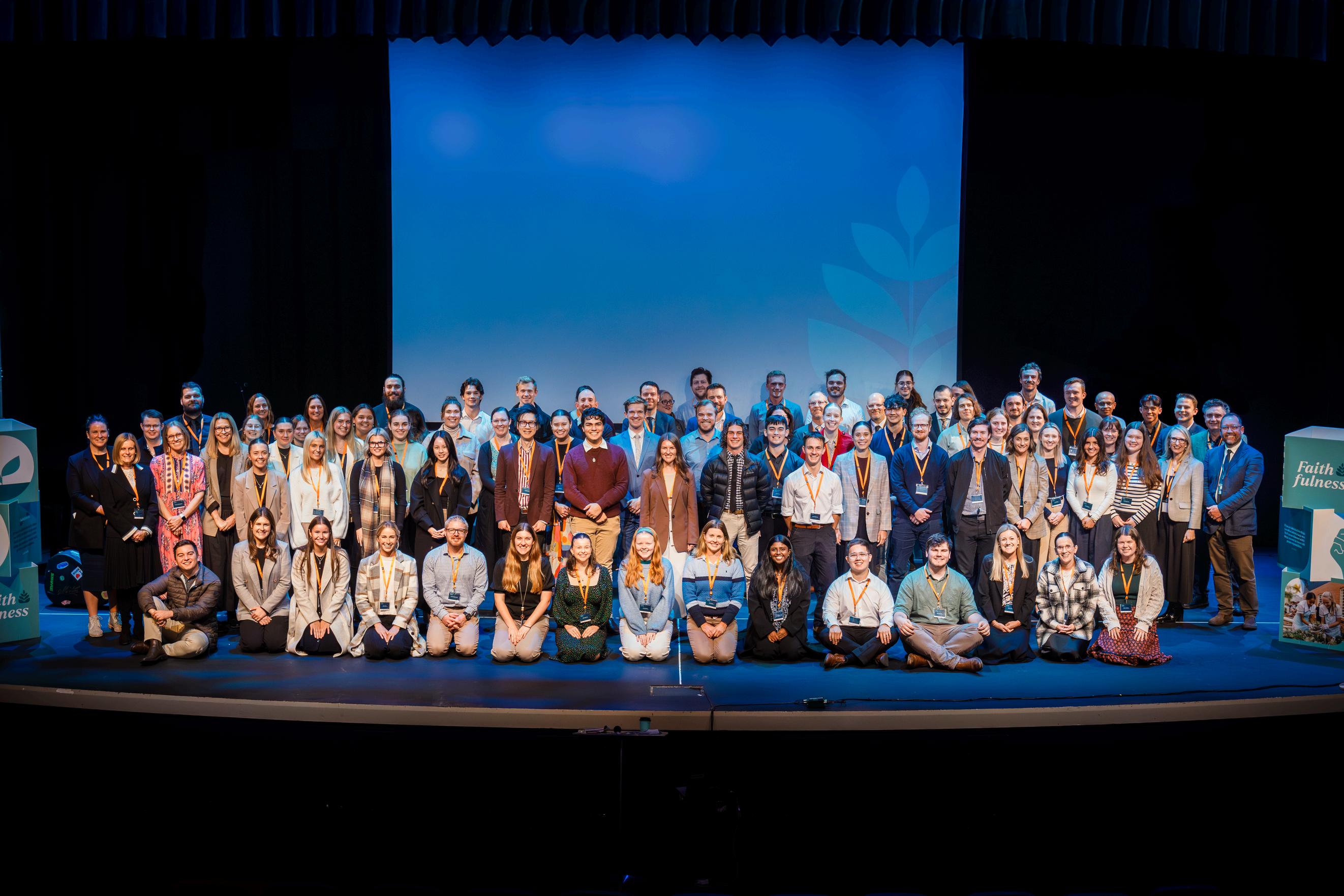
The depth of talent and commitment showcased by our trainees was inspiring, as their reflections revealed the impact of the Teaching School model.
Our Leadership Symposium, "Faithful and Flourishing – In Pursuit of Authentic Formation," brought together representatives from across the educational landscape, challenging us through Dr Timothy Wright and Mr Graeme Irwin's thought-provoking presentations to reflect deeply on maintaining faithfulness to our vision. Dr Rachel Perry's introduction of Phase 2 of the NECSTEP research journey reminds us that we are part of something significant — a Christian School movement that continues to evolve and grow.
As we continue to walk together in this journey of nurturing Christian educators, we are reminded that every lesson planned with care, every word of encouragement offered, and every prayer lifted contributes to the greater work God is accomplishing through us.
May this second edition of The Third Space inspire you to see afresh the significance of your calling and the privilege we share in partnering with God in the formation of faithful educators. May you find encouragement in these stories and be reminded that you are part of something far greater than yourself—a movement of God's grace working through us to accomplish great things.
Let us continue to be faithful in the little things, trusting that He who has called us will also equip us for every good work that lies ahead.
Blessings.


CALEB CUGLEY
St Philip’s Teaching School, Alumni
Why the scariest first day became the easiest—and what that taught me about taking leaps of faith.
As someone who hates uncertainty, first days are usually extremely stressful. Not just butterflies, but a herd of elephants stomping on my stomach—nauseatingly stressful. However, my first day as a fulltime staff member at St Philip’s Port Stephens was the easiest first day of my life. It was the new staff induction. We went over how to use iLearn—which I had already spent lockdown mastering—reviewed the code of conduct, and met the executive team. After the Head of Senior School spoke to all the new staff, he noticed me and came over.
“Haven’t you worked here for the last few years?” he asked, puzzled. I laughed and explained that while I had worked at Port Stephens during my degree, this was my first year as a full-time teacher. “Well, welcome aboard!” he said with a smile. I saw my old mentor teachers, sat at the same desk I’d used last year, and felt like I belonged. After all, these were the same colleagues who had once pretended to kill me for a Year 7 History lesson on my very first day in the staffroom! I had known for a while, but this was where I felt it most fully; I was home.
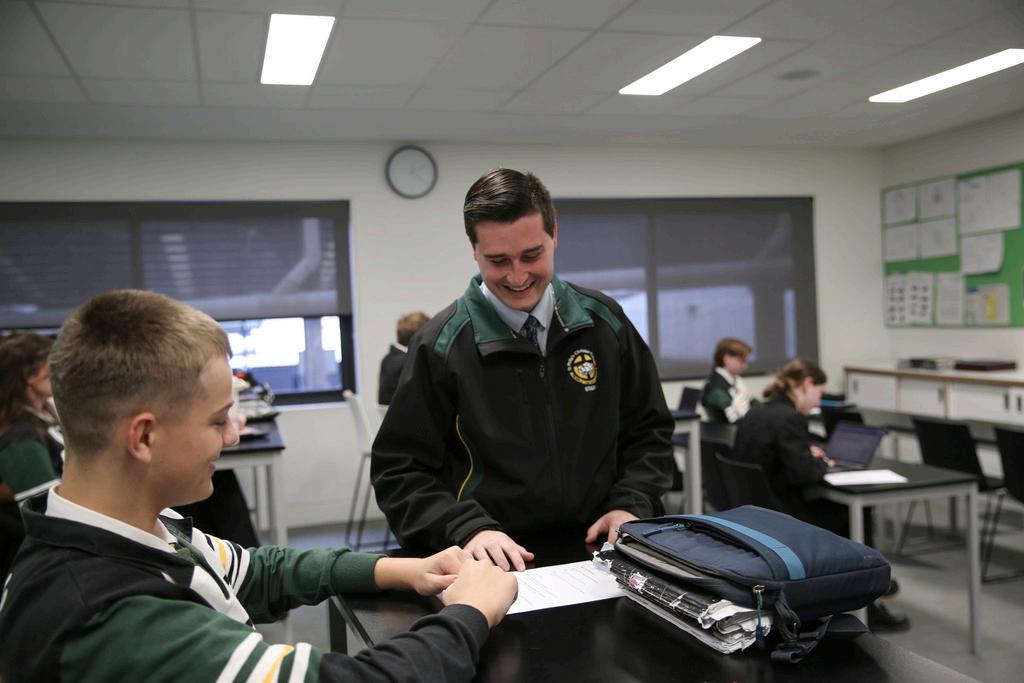

The Teaching School was a gamble for me. I had always lived a 10-minute walk away from The University of Newcastle and the plan was always to go there. But I couldn’t pass up the opportunity the Teaching School offered. Having done most of my schooling in Mayfield, I knew of St Philip’s Waratah, vaguely of Cessnock, and that was it. So when they asked which campus I wanted to be placed at during our first year as trainees, I naturally said one of those two—I also didn’t have my driver’s license at this time, so being able to get public transport was key. When Samantha called me saying I’d be placed at the Port Stephens campus, I was a little worried to say the least I didn’t know where it was, what it would be like, and—most importantly—how I’d get there.


I guess what I’m trying to get at is to be open to the possibilities. I didn’t think Port Stephens would work for me—it was too far, too unknown, too whatever excuse was buzzing around my head that day. But it was what I’d been given, so I took it gratefully. It became very apparent very quickly that this was the place for me. The staff were incredibly welcoming, the students were lovely, and who doesn’t love being 5 minutes away from the beach? For me, the Teaching School has always meant taking a leap of faith —from turning down Newcastle’s offer before I’d even been accepted, to finding transport to a school an hour away. But I wouldn’t be where I am today without taking those leaps.
So my advice to all trainee students: Take the leaps you’re offered. Whether that’s a new campus, an opportunity at University, the chance to write an article for the Teaching School Newsletter. Whatever the opportunity, if it's within your reach, say yes. You never know—it might just lead you home.
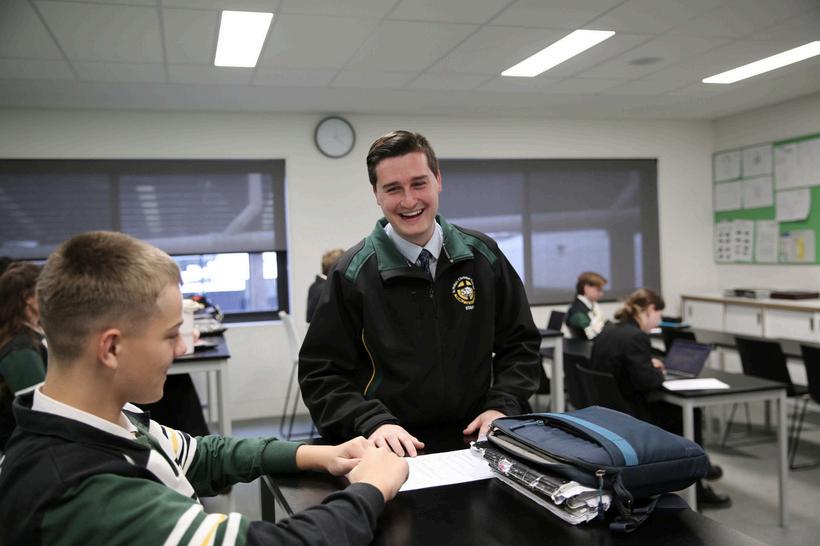
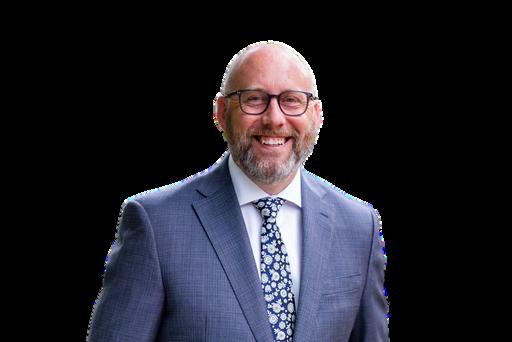
STEVE WALTON
Christian College, Principal
Finding teachers for a school in the picturesque Illawarra region might seem straightforward. However, when one of the prerequisites is that they must be genuinely Christian to fulfil the mission of a Christian school like ours, the task becomes more challenging than anticipated. Approximately five years ago, Cedars began exploring the possibility of forming a hub of schools committed to a Teacher Training Program aimed at developing high-quality Christian Teachers who were trained on the job and well-versed in Christian Education. At Cedars, we encouraged a few individuals within our community to embark on this journey of tertiary study and employment, and soon we had our first two Teacher Trainees.
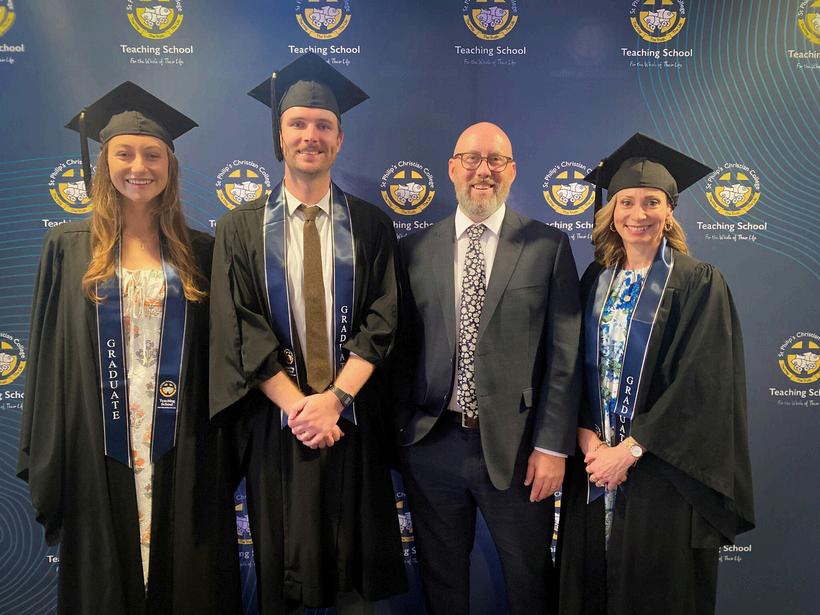
As this concept started to take shape, it was crucial to ensure its success. Consequently, we decided to visit St Philips Teaching School, the pioneers and leaders of this model, along with Alphacrucis College. Observing the offerings at St Philips and their advancements in pastoral care, academic rigour, and a Christian Framework, we inquired whether they considered delivering their program remotely to accommodate distant schools.
“Through a mix of online classes, insight days, and occasional inperson gatherings, our Teacher Trainees thrived in the program. ”
Innovating and leading require courage and a willingness to engage fully, which Cedars and St Philips embraced together. Under Samantha Van De Mortel’s leadership, the team at St Philip’s adapted their program to include students participating remotely. They sought feedback on the experience and made swift adjustments to enhance its effectiveness. Our small cohort at Cedars, now grown to five students, felt part of a larger community. Through a mix of online classes, insight days, and occasional in-person gatherings, our Teacher Trainees thrived in the program.
The mentor teachers for each trainee at Cedars play a critical role. Being an excellent practitioner is different from knowing how to mentor someone. Recognising this, St Philips provides training and touchpoints throughout the year to support mentors in their roles. Celebrating the mentors' contributions annually, with St Philips included, is a gratifying experience.
In 2025, we celebrated our first three graduates. As Principal, it is truly special to meet prospective teachers at the start of their tertiary studies, engage them in the school community as trainees under mentor teachers, observe their growth, and help shape them into excellent teachers who understand Christian education and know our College. This remarkable program is undoubtedly a win-win-win.
It benefits the Teacher Trainees, who receive on-thejob training from the onset of their studies, significantly more days in school compared to traditional tertiary study, and training in Christian Education.
Mentor teachers benefit by sharing their classrooms with trainees, contributing to their development, and even learning from them. Collective teacher efficacy is highly bolstered by this process.

Moreover, the College and educational movement gain significantly, creating a new pipeline of teachers wellequipped for teaching in Christian Schools through programs like this.
Cedars is now in its fifth year of operating as a teaching school. We have had eight Teacher Trainees, with three graduates fully employed at our College and five at various stages of study. With the goal of graduating 40 teachers for our College and beyond, partnering with St Philips in this noble pursuit continues to be rewarding.
“As Principal, it is truly special to meet prospective teachers at the start of their tertiary studies... and help shape them into excellent teachers who understand Christian education and know our College. “
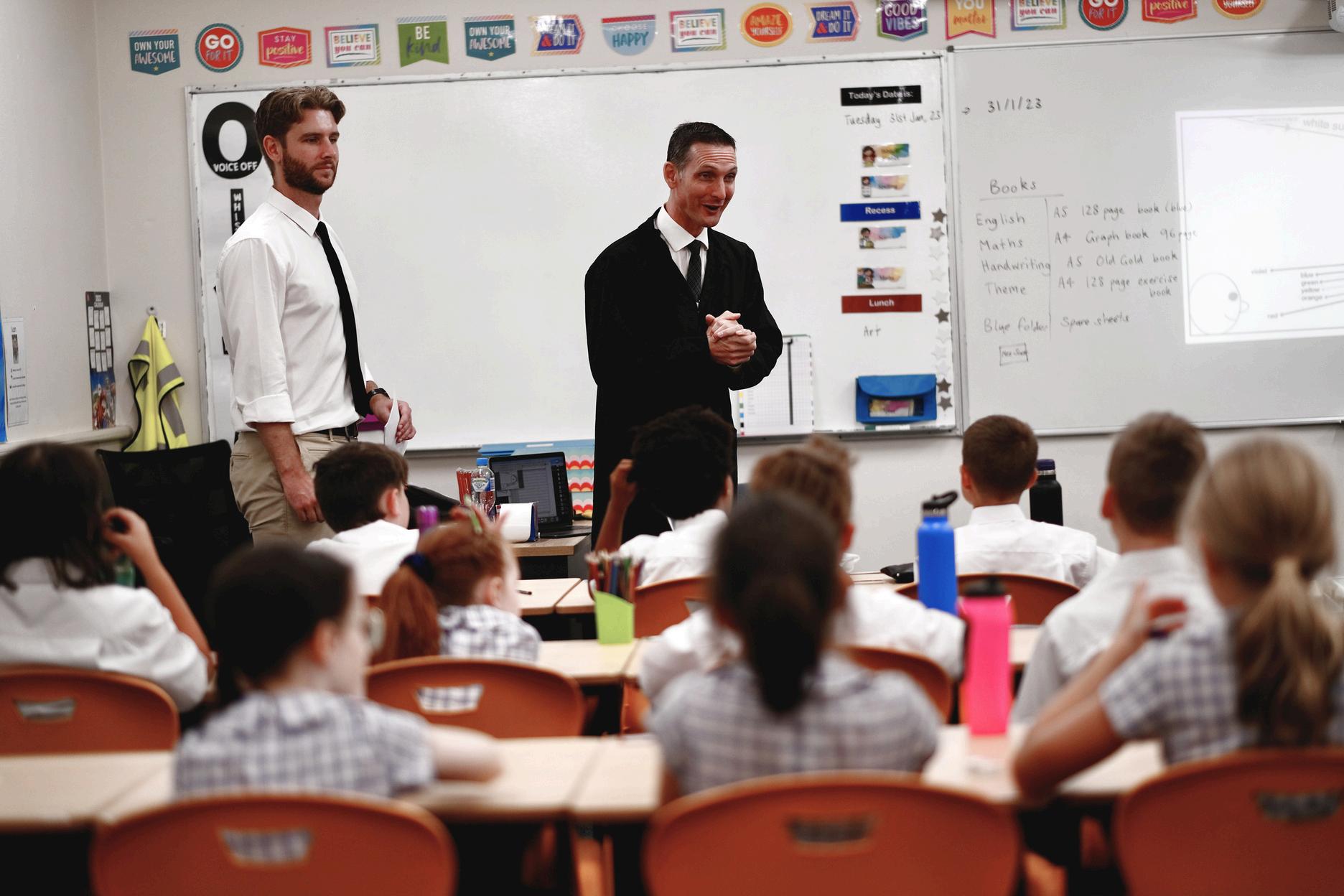

y When Adrian Lee taught Caity Baker Year 12 Advanced English, he never imagined that just a few years later she would be teaching beside him. It’s rare for someone who once guided you through the HSC to later mentor you into the profession—but for Adrian and Caity, their shared history sparked a journey built on trust, understanding, and momentum. Their move from classroom to staffroom highlights the unique and meaningful connections that can flourish through the Teaching School model
Year after year, the Teaching School mentor relationship proves foundational for trainees and deeply enriching for mentors. Mentors like Adrian who put up their hand to guide the next generation of educators consistently report personal and professional growth, with the mentoring process sharpening their own practice in unexpected and powerful ways. Adrian shared with us the impact of his own mentor journey and shared what it’s been like guiding his former student through the early stages of her teaching career.
"As educators, we’re driven by a desire to see others grow and develop, and I love that with the Teaching School model you get to walk alongside the trainee for a whole year. It’s incredibly rewarding to witness that transformation over time. ”
Adrian, what motivated you to become a mentor with the Teaching School program?
When our principal first spoke about partnering with the Teaching School, I immediately saw the value in the model and knew I wanted to be part of it. I’ve always felt a strong sense of responsibility to support aspiring teachers. As educators, we’re driven by a desire to see others grow and develop, and I love that with the Teaching School model you get to walk alongside the trainee for a whole year. It’s incredibly rewarding to witness that transformation over time.
What have you learned or gained personally and professionally through mentoring?
Personally and professionally, mentoring has been incredibly valuable. It’s reminded me how important it is to stay reflective and reflexive in my practice. As teachers, it can be easy to fall into patterns and stick with what’s familiar, but mentoring challenges me to think critically about why I do what I do and how I can explain it clearly to someone else. That process alone has made me a better teacher. It pushes me to constantly evaluate what works in the classroom and why, which ultimately strengthens my own teaching.
In your view, what sets the Teaching School model apart from traditional teacher training?
The key is the way it immerses trainees in the life and rhythm of a school from day one. Unlike traditional pathways where students often struggle with the transition I’ve seen this model build confidence and practical skills gradually and consistently. The ongoing, intentional mentor relationship is a key strength and far more effective than the usual accreditation support. With time to build trust and tools that support targeted development and access to quality research, the Teaching School really sets trainees up for long-term success.
“Unlike traditional pathways where students often struggle with the transition, I’ve seen this model build confidence and practical skills gradually and consistently. ”
Can you share a moment that made you proud of your trainee’s growth or progress?
One standout moment was when Caity used her drama skills to bring a challenging HSC text to life, helping students engage with and better understand the material. She had the students reading lines in different accents, making it fun and engaging while building a real connection. It was a real moment of pride seeing her bring her unique strengths into the classroom so effectively.
If you could give one piece of advice to new mentors or those considering mentoring, what would it be?
Go for it! Mentoring isn’t just about supporting someone else’s growth, you’ll grow right alongside them. It’s a rewarding opportunity to reflect, be challenged, and continue developing your own practice.
“Mentoring isn’t just about supporting someone else’s growth, you’ll grow right alongside them. It’s a rewarding opportunity to reflect, be challenged, and continue developing your own practice. “
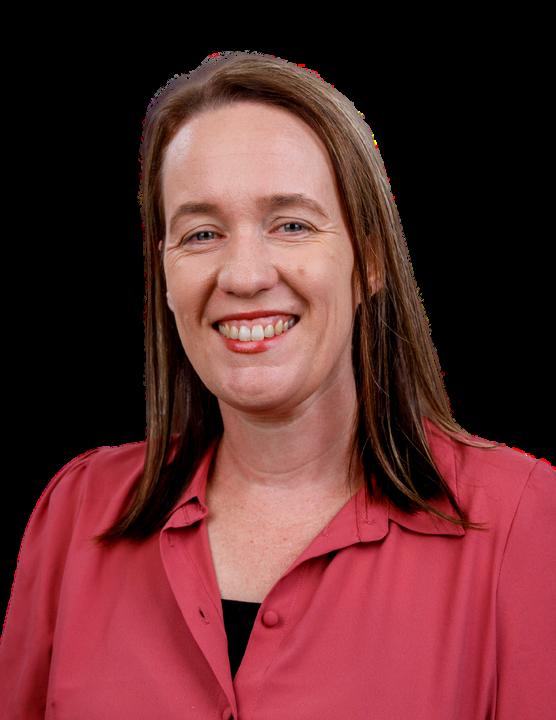
NICKEY BRIGHT
St Philip’s Teaching School, Lead Specialist - Operations and Strategy Interviewee Interviewer

ADRIAN LEE Orange Christian School, Teaching School Mentor
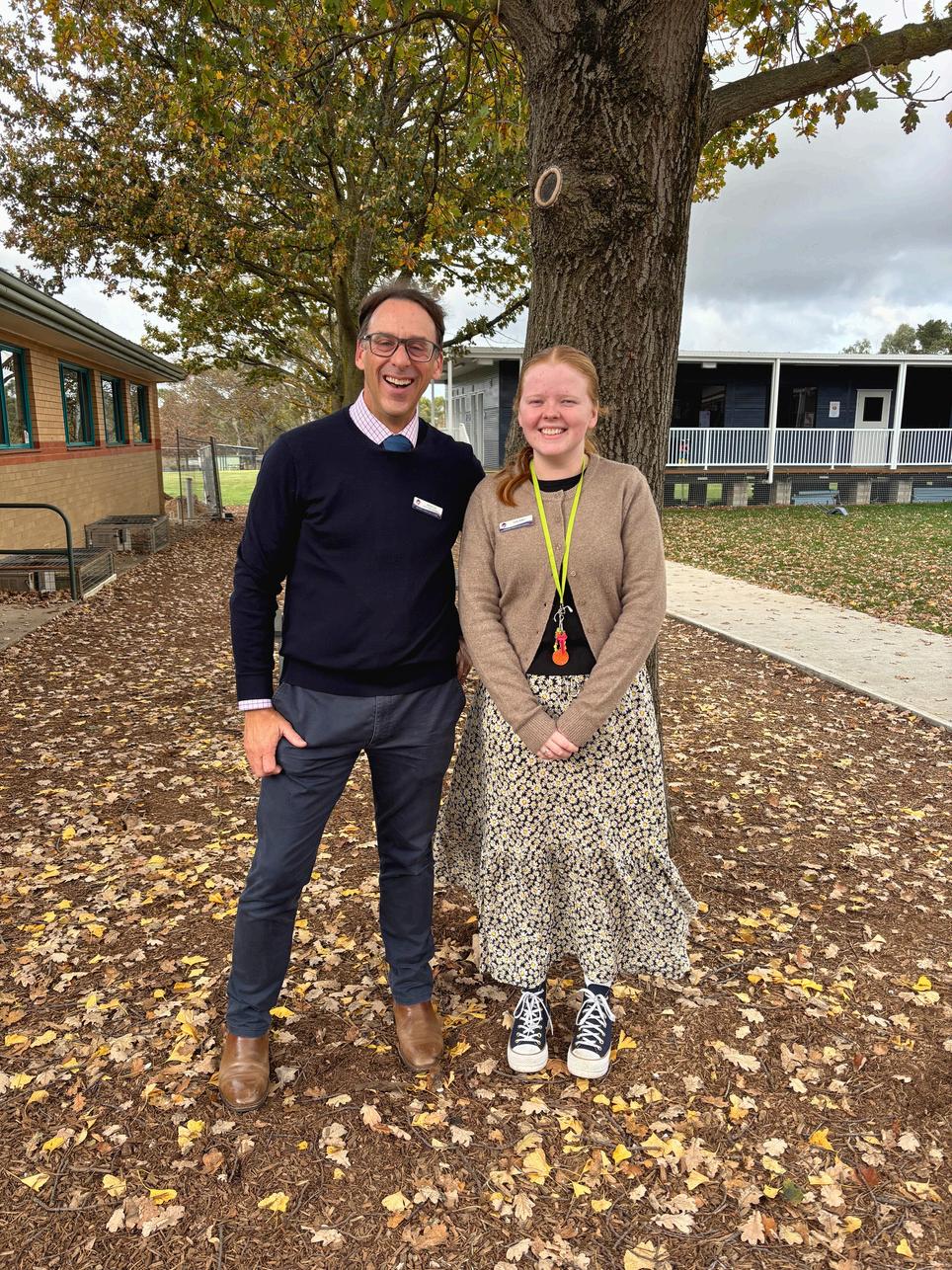

When Caity Baker graduated Year 12, she wasn’t certain what came next. Having spent her entire schooling at one campus in the tight-knit town of Orange, she wasn’t eager to leave the community that had shaped her. The influence of her own teachers had sparked an interest in education, but the traditional university route didn’t feel quite right.
Then Caity’s dad suggested the Teaching School. The opportunity to stay in Orange, start teaching immediately, and learn in the very school that raised her was too compelling to ignore. But she was still unsure: until day one in the classroom.
“On day one, I just knew,” she says. “It was exhausting, but it felt right.”
Now in her second year of the program, Caity reflects on her journey so far and the unique experience of being mentored by one of her former teachers.
“Teaching is a rare opportunity to not only deliver curriculum, but to walk alongside young people during some of the most formative years of their lives. ”

What inspired you to pursue a career in teaching?
I chose teaching because of the impact my own teachers had during a challenging Year 12. They showed up, cared deeply, and made a real difference. I want to be that kind of presence for my students. Teaching is a rare opportunity to not only deliver curriculum, but to walk alongside young people during some of the most formative years of their lives. Especially in Christian education, it’s a privilege to mentor students and invest in who they’re becoming, not just what they’re learning.
Why did you choose The Teaching School over other teacher training pathways?
I chose the Teaching School because it allowed me to stay in my community while beginning my teaching journey. I had accepted early entry into Newcastle University as a backup, but what I really wanted was a pathway that combined Christian values with practical experience. The Teaching School offered exactly that. Being in the classroom from the very beginning and learning alongside other Christian trainees has been incredibly valuable. Even though I’m in a regional area, I’ve felt well supported. Other trainees check in regularly, and I’ve been able to form meaningful friendships with likeminded people I might not have met otherwise.
“Being in the classroom from the very beginning and learning alongside other Christian trainees has been incredibly valuable. ”
What aspects of the program have been the most beneficial for you so far?
So much of the program has been incredibly valuable. Connect time during Insight has been a great source of support, and the targeted projects have helped build practical skills I might not have learned otherwise. The clear, step-by-step guidance has made a big difference. Most of all, having a mentor has been invaluable—someone to guide me, advocate for me, and help me grow in confidence from day one.
“Having a mentor has been invaluable someone to guide me, advocate for me, and help me grow in confidence from day one. “
How is your second year different to your first?
This year I’m teaching more independently, setting clear goals, and learning through targeted observations. Working with different teachers, including my former teacher Adrian, has helped me grow in confidence and see the classroom from both student and teacher perspectives.
What’s the funniest or most unexpected thing that’s happened to you in a classroom?
Just this week, I was teaching Year 8 boys about drama conventions, and they were being their usual aloof selves. To break the ice, I threw myself into it and literally curled on the floor pretending to have a tantrum. After their initial shock, they lots some of there reservations and got involved.
What has it been like being mentored by a past teacher?
Being mentored by a past teacher has been really eye-opening. I’m seeing things from his perspective now, but because I was sitting in those same student seats not long ago, I can also relate to how the students are experiencing things.

CAITLIN BAKER Orange Christian School, Trainee Teacher Interviewee
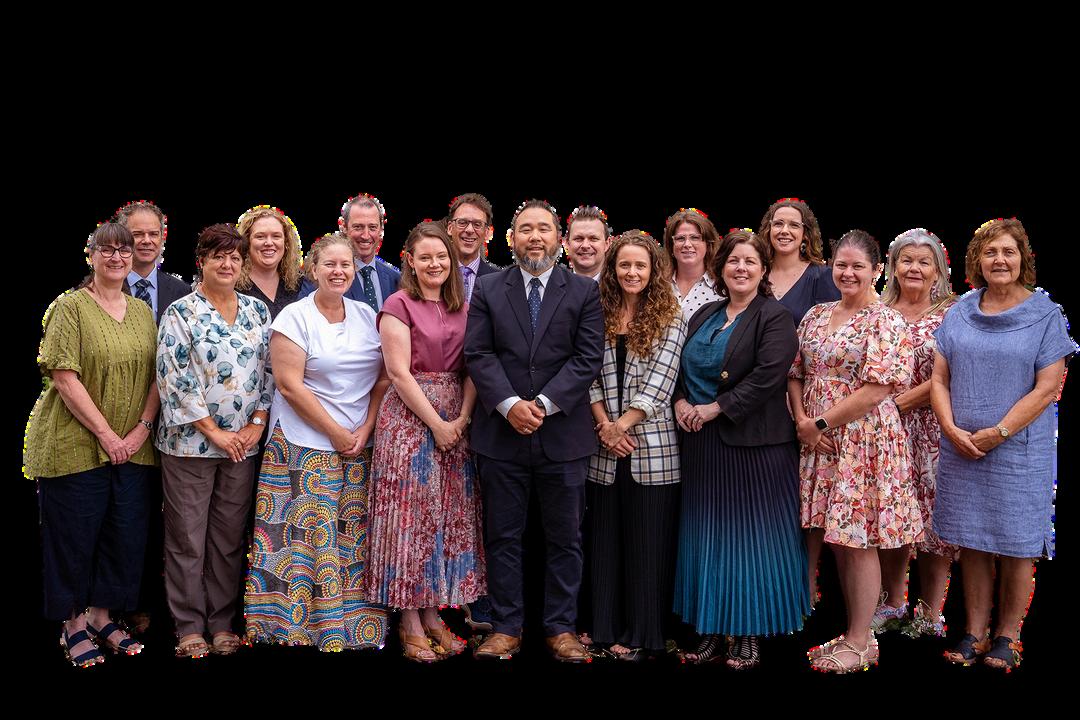

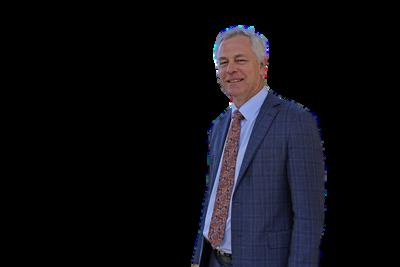
GRAEME JOLLIFFE
Nowra
Christian School, Principal
With young people seeking truth and Christian education booming, the need for quality teacher training has never been more urgent.
Across the globe, enrolments in Christian schools are growing. Christian families are increasingly seeking educational environments where subjects are taught from a Christian worldview. At the same time, families without an explicit faith commitment are also drawn to these schools because of the alignment between the schools' values and their own family ideals.
Alongside this growth in education, there is a noticeable resurgence in church attendance, particularly among young people—especially young men. Many are recognising a disconnect between the messages they hear from the world and what they experience in real life. In their search for meaning and truth, they are turning to the church for answers. Just this week, a colleague shared the story of three young men who returned from overseas and attended church for the first time. They said they needed to "sort their lives out" and asked for Bibles, expressing their intention to return the following week. Another colleague in the United States recently shared that 350 students in his school, though not currently attending church, are actively seeking to begin doing so.
In my lifetime, I have not seen a more fertile opportunity to share the gospel with young people. Christian schools are ideally placed to meet the deep spiritual hunger of today’s youth by sharing the hope of salvation through Jesus’ death and resurrection.
At the same time, however, we are facing a global shortage of teachers. Headlines frequently report on the rising number of educators considering leaving the profession. At Nowra Christian School (NCS), we have had to seriously consider how we can ensure a continuing supply of quality Christian teachers to fulfil our mission of Christ-centred education. One part of our strategy is to make NCS such a supportive and positive workplace that teachers want to stay. But we also recognised the need to raise up the next generation of teachers.


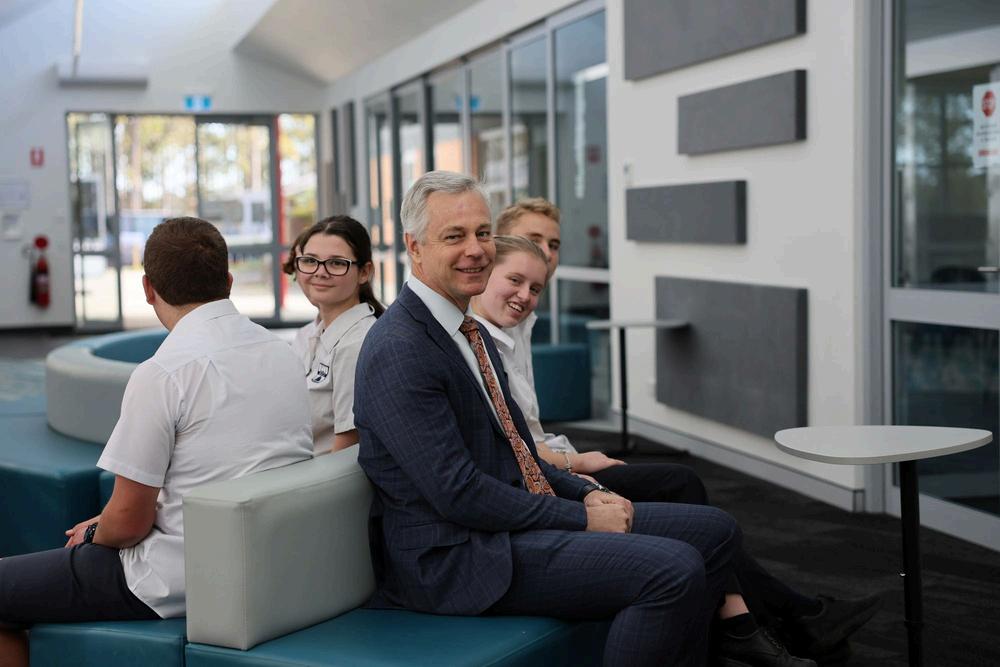

The St Philip’s Teaching School formalises a process that I witnessed occur organically at my previous school, Casino Christian School. There, several teacher aides in Kindergarten, were inspired by observing the masterful teaching of Faith Hull, now Principal. Through that incidental mentorship, they were drawn into the teaching profession.
NCS is blessed with experienced, highly skilled teachers who are naturally gifted at guiding others. By partnering with the St Philip’s Teaching School’s formal mentorship program, we now have a pathway for aspiring educators to learn by observing expert teachers and receiving ongoing guidance.
Interest in the program has grown, with many local aspiring teachers expressing a desire to seek a traineeship at NCS. Through our partnership with the Teaching School, trainees not only learn how to teach well but how to teach from a biblical worldview. Early in their training, they are already learning to embed Christian perspectives into their lessons, enabling them to support the school’s mission with integrity and confidence.
Trainees absorb the wisdom and classroom strategies of their mentors, and by the end of their first semester, many are already teaching parts of lessons independently. This early success boosts their confidence and confirms their calling to the profession. Far from being disillusioned, they are energised and committed to continuing.
Our desire is to offer every graduate a teaching position; however, our motivation remains altruistic. We believe these trainees, shaped by quality mentorship and a biblical foundation, will be an asset to any Christian school. If Christian schools across Australia embraced this approach, we could meet the growing need for faithful, passionate Christian teachers—and continue declaring the goodness of God whilst we educate the future generations.
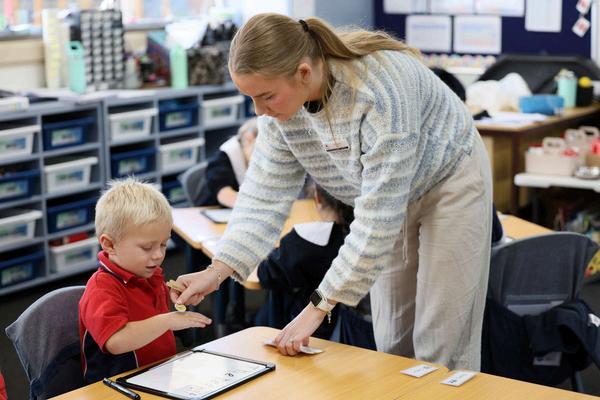
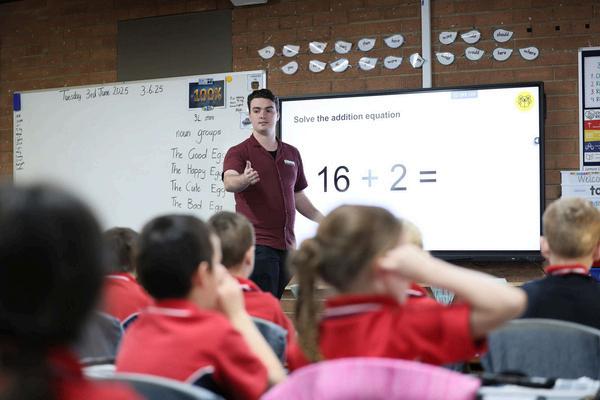
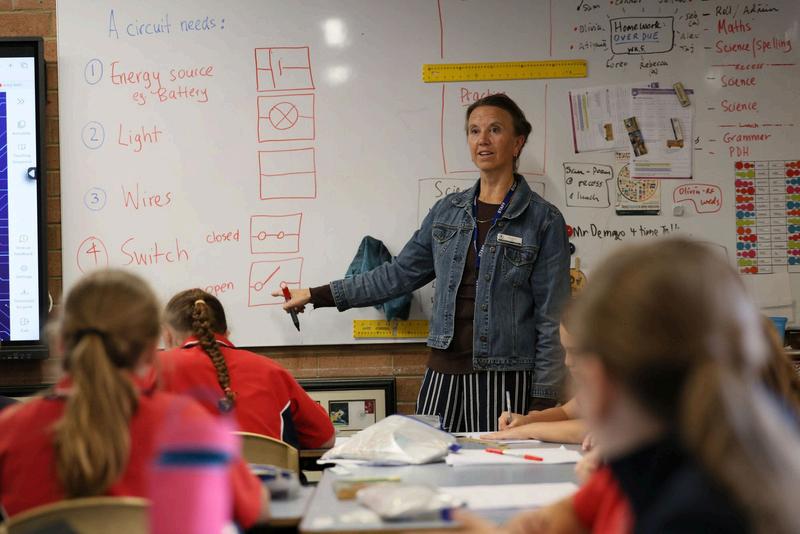


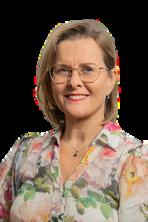
LIZ HUTCHISON
St Philip’s Teaching School, Lead Specialist - Higher Education Development and Research
I spent five May days travelling the NSW east coast observing nine trainees on their professional experience. This involved reviewing lesson plans, experiencing lessons, and debriefing using a coaching posture.

TEACHING SCHOOL FEEDBACK TIPS
For those trainees readying themselves for their future professional experiences, consider these tips to help you reflect on the feedback. Consider concepts coming from different pieces of data, growth goals previously set and the aims of your professional experience and put on a learning posture. How is the Lord calling you to grow in your next phase of formation?
CONSISTENT CONCEPTS
Professional experience observation is only a snapshot in time. You might have had a great lesson that matches your regular performance, or it might have not displayed your best work. Both feedback and selfreflection are important. Ask yourself how feedback aligns with previous feedback you received from your mentor or teaching school observers.
GROWTH GOALS
Formation is a process, so think about how you have grown in relation to your learning targets and then plan for the next stage of your formational learning journey by setting plus one goals – these are goals that stretch you to grow but are not too challenging that you will snap. Ask the Lord to guide you as you discern your next steps.
REFLECTIVE RESPONDER
How do you respond to feedback? Do you have a posture of humility and a growth mindset, or do you discard the feedback responding defensively? It impressed me during the debrief conversations when trainees internalised the feedback, making connections to their own reflections or previous feedback from others, and when they articulated possible goals going forward. Many trainees held responsive postures.
Organise: Gather all documentation, templates, and paperwork into colorcoded folders before starting your placement. Having lesson plan templates, observation forms, and assessment rubrics organized prevents you from scrambling during the placement and allows you to focus on teaching rather than administrative tasks.
Communicate: Contact your mentor prior to arrival to discuss expectations and share your goals. This conversation ensures you're both aligned on what the placement will involve and helps your mentor prepare appropriate support and challenges for your skill level.
Meet: Arrange to meet your mentor before the placement begins if possible. Meeting outside school hours allows for relaxed conversation about procedures, parking arrangements, and first-day logistics without the pressure of regular school operations.
Imagine: Consider what you would want from a teacher as a student and develop tools to support student success. This perspective helps you focus on building confidence, creating positive learning experiences, and developing strategies that genuinely serve your students' needs.
PEP Plan: Create a timeline and checklist with your mentor to map out the entire placement duration. Having a clear schedule of which lessons you'll observe, teach, and evaluate helps you prepare adequately and ensures all requirements are met on time.
Life Plan: Prepare support systems and meal plans to manage the demanding cognitive load of practicum. The intensive nature of lesson planning, teaching, and reflection while juggling other assignments and life requires deliberate preparation of daily routines and support networks.
Research: Learn about the school's culture, mission, dress code, and behavioural expectations. Understanding the school's context helps you present professionally and align your teaching approach with their educational philosophy and community values.
Following each debrief session, I asked for key pieces of advice trainees might offer their peers before, during, and after a professional experience. Here are ‘key hacks for successful pracs’ from the May Day Observations.
Document: Write down routines and classroom expectations to maintain consistency in your teaching. Recording procedures, bell times, and behavioural management strategies helps you integrate better into the classroom environment and reduces cognitive overload.
Pace Yourself: Start with mini-lessons or short activities like Kahoot before taking on full lessons. Beginning with 5 to 10minute segments allowing you to build confidence and establish rapport with students before managing entire class periods.
Know Your Students: Learn names, personalities, and learning needs to build rapport and manage behaviour effectively. Investing time in relationships during the first weeks makes behaviour management easier and allows you to differentiate instruction for diverse learners.
Learn: Build relationships with other teachers and staff to create a supportive network. Being social and collaborative, even as an introvert, creates a welcoming environment and provides valuable professional connections for your career.
Prepare: Ensure reliable internet access and print backup lesson plans in case technology fails. Having both digital and hard copies of materials prevents disruption when school Wi-Fi is unavailable, or device connectivity issues arise during lessons.
Be Responsive: Consider seating arrangements that maximize engagement and foster respect. Whether using assigned seats or free choice, your arrangement should promote active participation while maintaining a positive classroom environment.
Thank People: Express gratitude to your mentor teacher and school for their time and investment.
Acknowledging the significant effort your mentor has put into sharing knowledge, providing feedback, and supporting your growth shows professionalism and maintains positive relationships.
Reflect & Goal Set: Review your experience while it's fresh and identify goals for future placements. Capturing insights about your teaching strengths and growth areas while details are clear helps you prepare more effectively for subsequent professional experiences.
Finish: Complete all paperwork and reflections promptly while details remain clear. Submitting required documentation quickly while experiences are fresh ensures accuracy and prevents the stress of rushed completion later.
Rest: Take time to recover and avoid burnout after the intensive placement period. The demanding nature of practicum requires deliberate rest and recovery to maintain your wellbeing and prepare for ongoing studies.
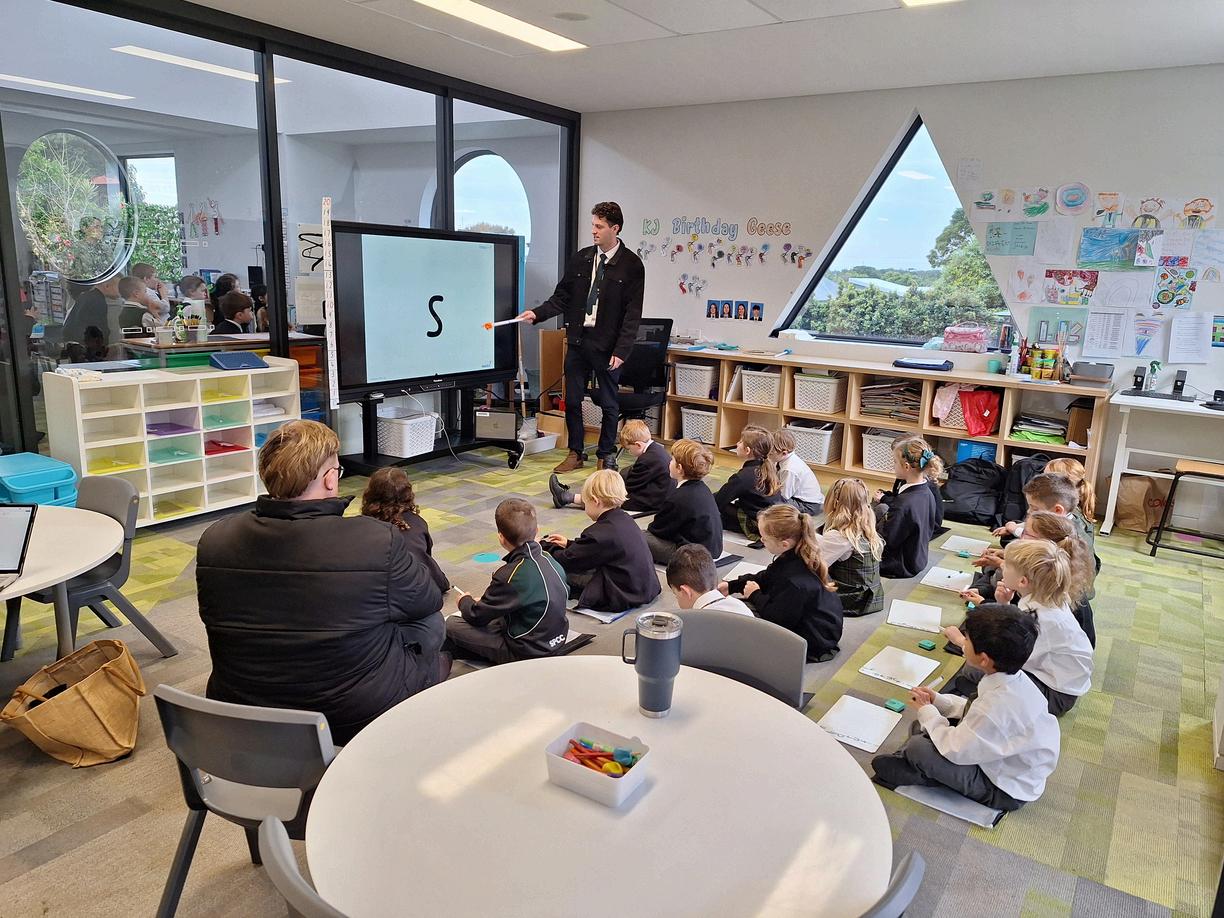
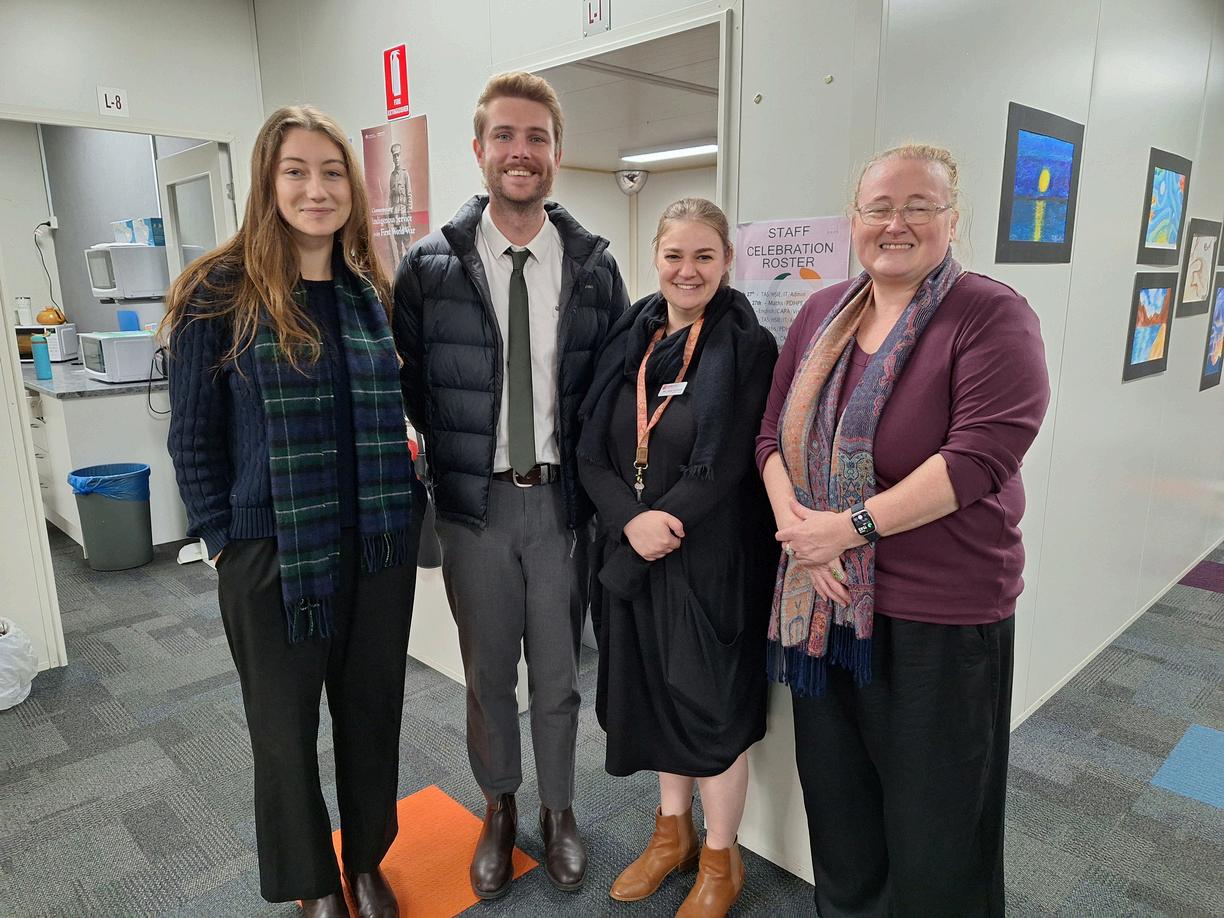
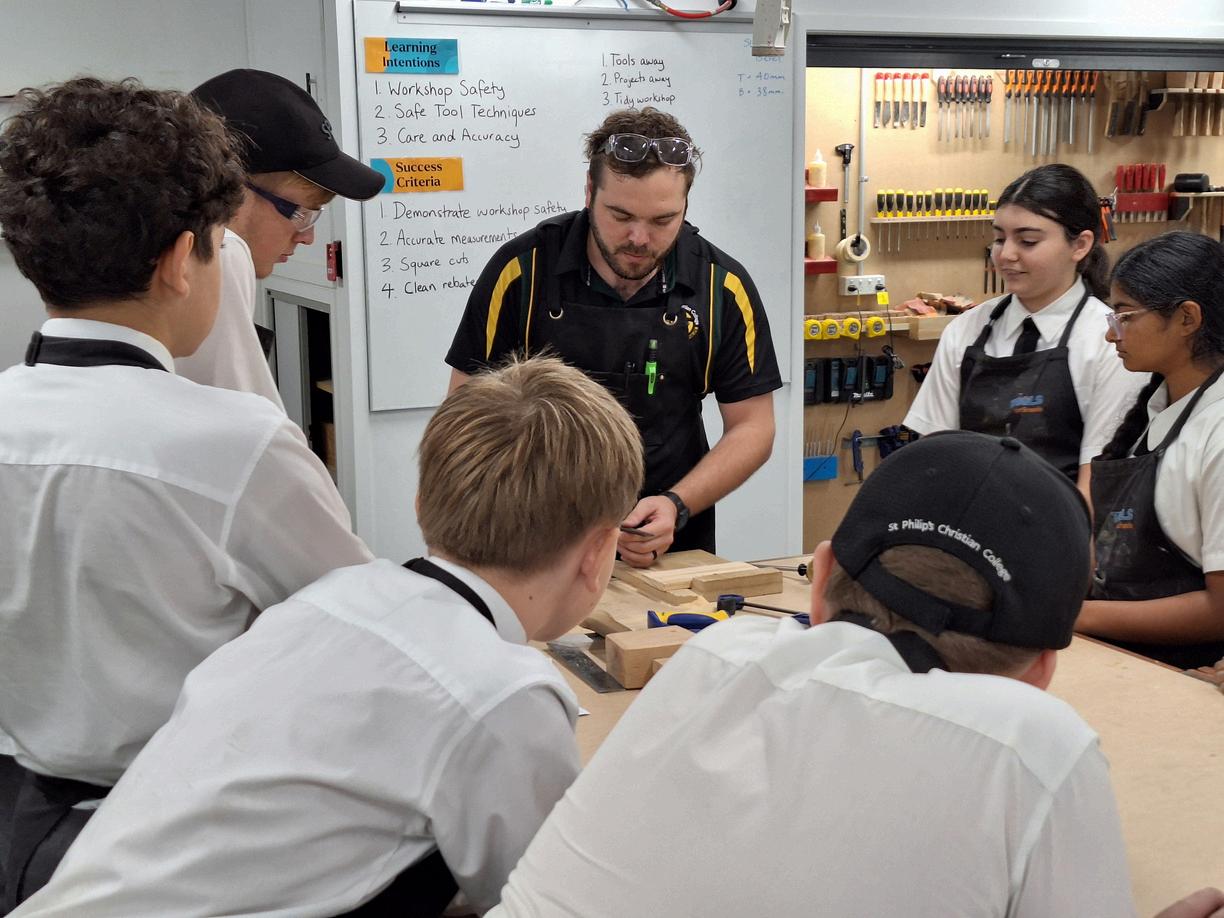
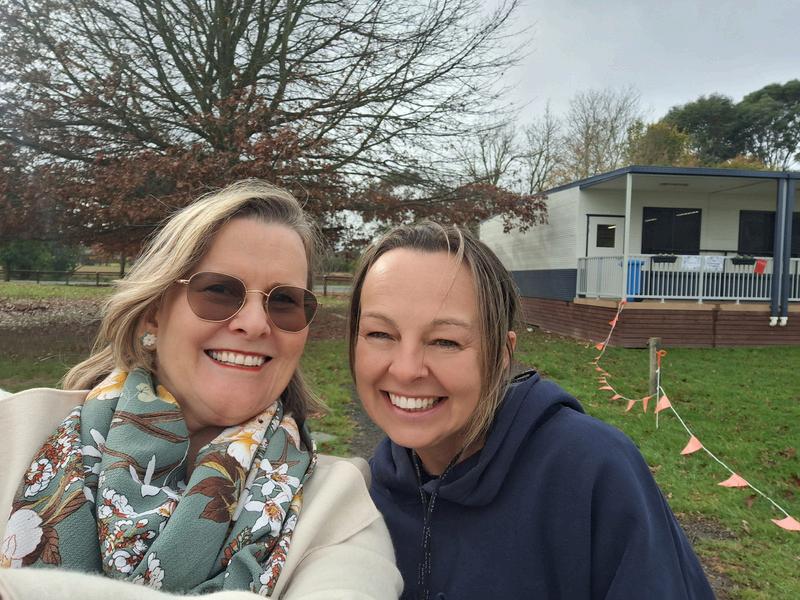
I loved observing trainees, in classrooms far and wide, through flooding rains I drove there, with windscreen wipers to guide. From Wollongong’s coastal learning to Bowral's highland halls, then Gosford, Port Stephens & Waratah, responding to trainee teachers' calls. I loved their studious planning, their lessons fresh with insight, their stumbles and their triumphs, their eyes that shone with light. The roads might have been flooded, and the journey tested my will, but watching them uncover their calling gave me many a thrill.


It was a joy to participate in trainee formational journeys and to glean your insights for success. May these tips and hacks be a reminder for each of you and a blessing to other trainees as you prepare for future professional experiences.
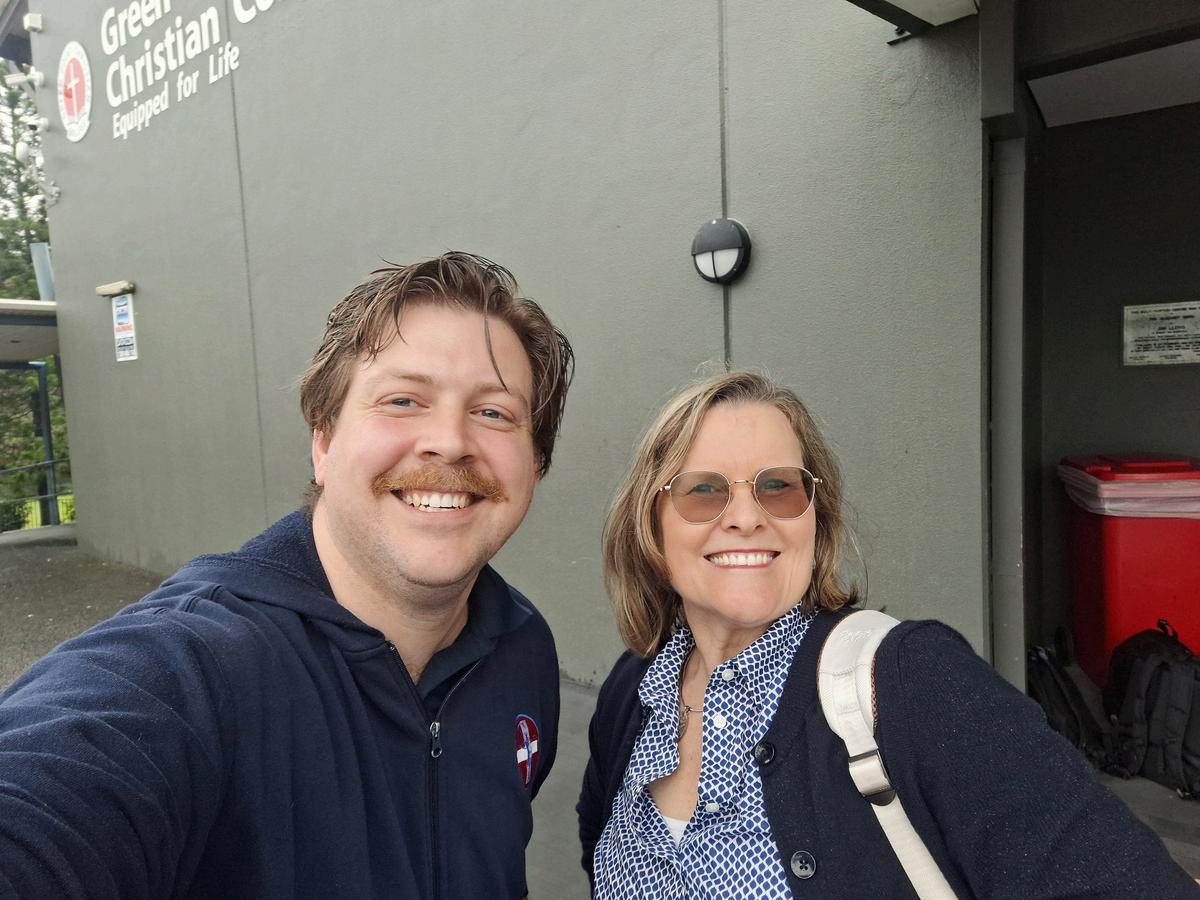

ANDREW
YOUD
St Philip’s Christian Education, Strategy & Development Manager The Author
The Teaching School model is a mission-critical investment in the future of Christian Education. Through a triangulated approach, partnering quality schools with the Third Space and Christian tertiary institutions, it creates a sustainable and structural solution resulting in a reliable pipeline of quality graduate teachers who are professionally and contextually prepared. The model is not cheap; it is an investment aimed at generational change. So how does one evaluate the substantial return on investment?
In order to determine the value of the investment, one must also consider the value and costs of the current approach to ITE. As Professor Mark Hutchinson observed early in its design, “Christian schools have assumed that the training of teachers is somebody else’s business.” Schools have had at best a cursory level of involvement, and let’s not kid ourselves, the vast history of practicum placements has been a hollow gesture to both ITE students and the schools rather than meaningful educational development. This isn’t to blame tertiary providers; an overcrowded ITE curriculum leaves little room for much more. Yet on the whole, the current ‘system’ of ITE is, as Graeme Irwin recently articulated at the Australian Association of Teaching Schools Leadership Symposium, “broken”. We do not have sufficient quantity and quality of graduates to supply schools with teachers who can deliver the quality of education required. In effect, we have a supply chain issue. Schools can no longer sit on the sidelines, hoping the situation will change itself. Hope is not a strategy.
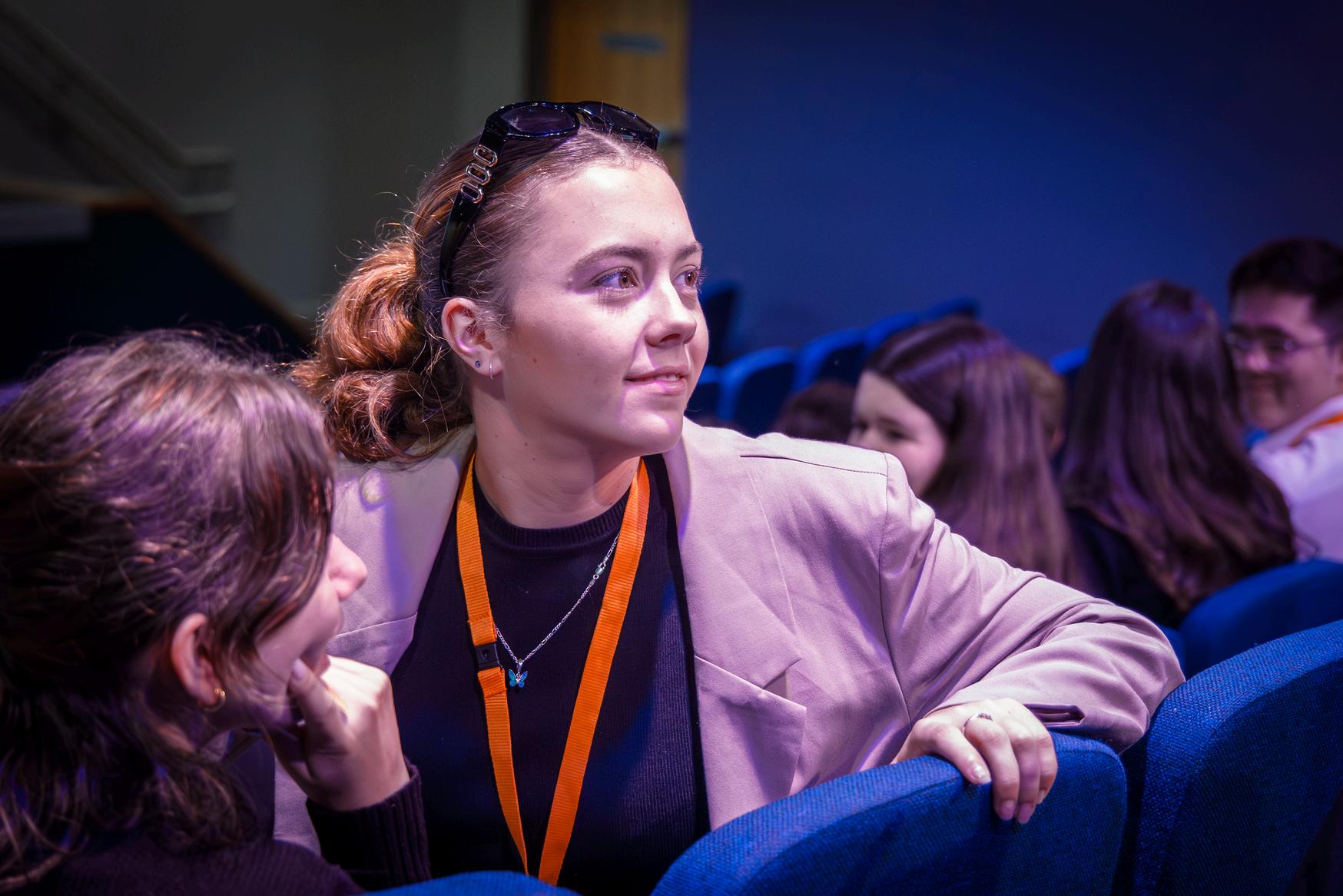
The Teaching School model is likened to the Teaching Hospital model, whereby the industry makes a qualitative change to partner with tertiary, creating synergies that exceed what either sector could achieve alone. It is a genuine partnership, philosophically communicating that neither schools nor tertiary institutions are sufficient in themselves to attract and form quality Christian teachers. It isn’t a patron-client model; partnership recognises that each party has an essential contribution to make. This is a controversial statement, for teacher registration authorities have given it to Higher Education Providers alone the responsibility of training teachers. The Teaching School does not diminish the requirements of tertiary providers but builds upon their strengths, recognising that schools possess unique capabilities essential to teacher formation –capabilities and expertise that deserve recognition and investment.
The Teaching School model was founded on the principle that teachers are best formed in community where there are teachers and students. As the Principal of the St Philip’s Teaching School said early on in its development, “it takes a village to raise a teacher.” Teaching is a craft, a human profession, with more to be caught and taught than previously appreciated, making it more suited to apprenticeship than lecture halls. But this is more than just extending an ad-hoc practicum placement. Forming professionals in relationship under quality teachermentors requires intentional design, systematic training, resourcing, monitoring and ongoing development. The resources and expertise required to perform this crucial role are provided by the Third Space, equipping and supporting schools and their leadership to exercise their formative responsibilities.
Mentors are the secret sauce of the model. Their development is crucial, and the results aren’t only seen with their trainee teachers. Mentors have themselves consistently reported improvement in their practice. The exposure they receive to the latest research through their trainee in addition to the resources and training provided by the Third Space enables them to reflect and improve their own practice. They experience increased satisfaction and meaning, along with another pair of hands within the classroom. This creates a leadership pathway, activating potential that overflows to the rest of the school community.
The investment, therefore, is in building the village –but the return is realised in the school. The obvious focus is the training teacher who graduates and is employed, but we must also consider the value in capability development of the school community, including leadership and mentors. To evaluate return on investment, we look at the school as a whole, the staff, and graduates across the multiple levels of impact, including school culture, educational outcomes, reduced attrition, staff morale, professional learning, leadership activation, and so forth. This investment creates lift to the school, impacting the staff community, educational outcomes, and reputation amongst its parent and broader community. The school making a structural and strategic change in investing in its staff, is itself a return on investment. For Christian schools committed to exceptional Christian education, the question is not just what is the return, but what are the costs of not making this investment.
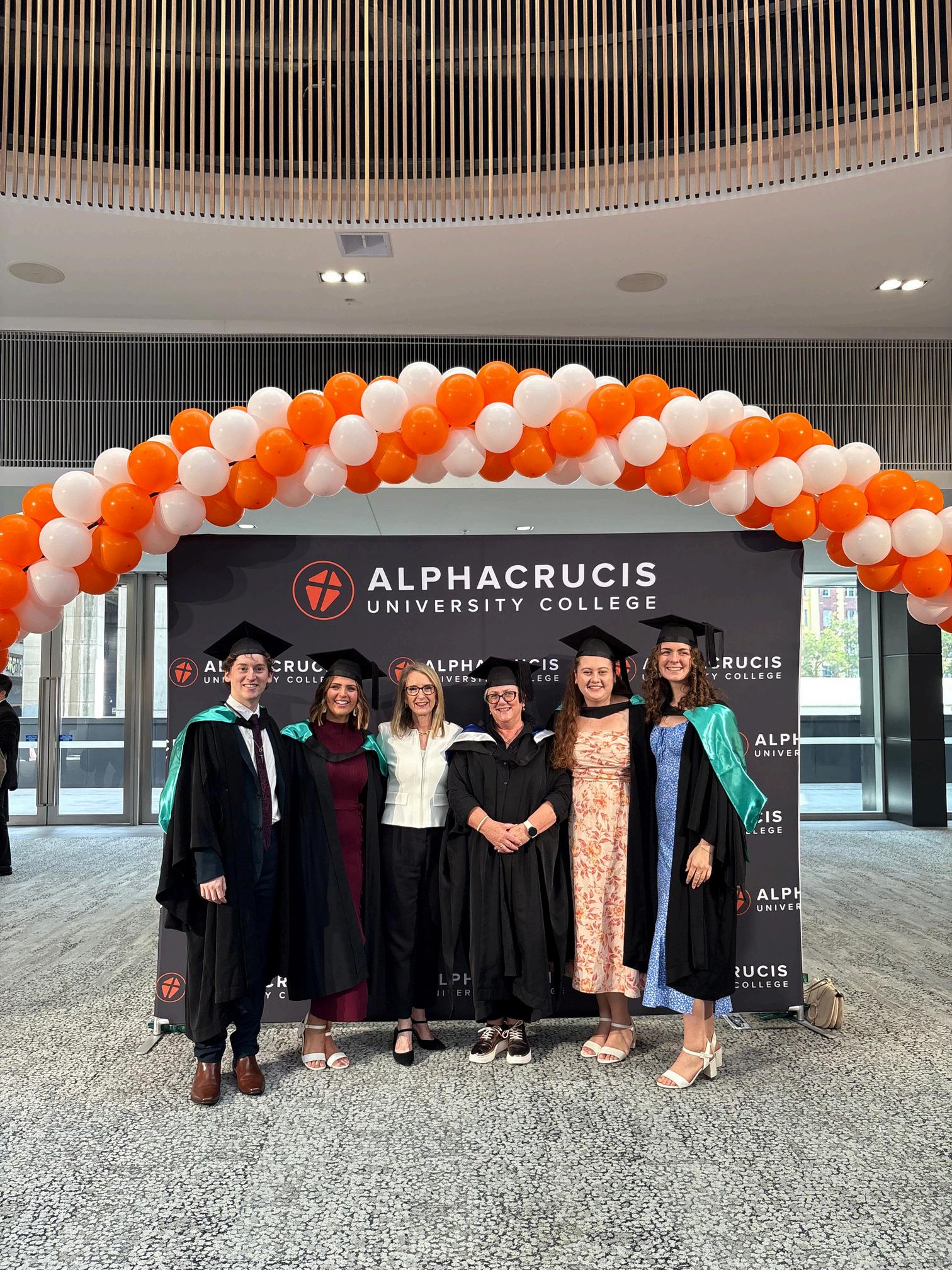

Author
St Philip’s Teaching, School Principal
How could tertiary education and school communities partner to form contextually and professionally ready teachers?
This was the question I found myself asking several years ago as a principal of a Christian school. Like many school leaders, I was deeply committed to the formation of excellent teachers who are classroom ready and equipped to teach Christianly. But increasingly, I noticed a gap between theory and practice, between tertiary and school.
This challenge was not unique to my context. Educational researcher Kenneth Zeichner (2010) found that traditional relationships between institutions often struggle to bridge theoretical knowledge with practical classroom experience. It was this recognition that sparked an innovative partnership in 2018 between St Philip's Christian Education Foundation and Alphacrucis College that is reshaping teacher education across the nation. Trainee teachers are placed within school communities from day one of their degree. Rather than learning about teaching in isolation, trainees become employed members of our school community, aligning academic study and classroom practice while developing their professional identity with the guidance of a dedicated mentor.
As the model grew, a distinct space with its own educational identity began to emerge. We were building a collaborative environment where tertiary providers, schools, and communities could co-create understandings about teaching (Zeichner, 2010). Within the St Philip's Teaching School community in 2020, this became known as the The Third Space — a place for challenging traditional models and reimagining teacher formation.
Compared to the more hierarchical structures often seen in traditional models of teacher education (Souto-Manning & Martell, 2019), the The Third Space at St Philip’s Teaching School partners with schools and tertiary institutions in a triangulated approach to teacher education. This model promotes authentic collaboration, reduces traditional hierarchies, and fosters shared knowledge and responsibility in teacher and mentor formation. Within this space, trainees, mentors, and school communities are strategically equipped and continuously supported in the formation of Christian teachers.
This model demonstrates the effectiveness of genuine partnership. Tertiary educators provide theory, schools offer lived experience, and the The Third Space brings strategic coordinations, resourcing, wrap-around support and the vital bridge between theory and practice. Together, they create what Zeichner (2010) envisioned as collaborative spaces where knowledge communities meet and learn together about teaching. What began as a principal's wondering has evolved into a proven model that helps schools become Teaching Schools.
When tertiary institutions, schools, and the The Third Space works together with shared vision and mutual respect, true formation takes place. This unity of purpose has created a thriving partnership where theory meets practice, where the next generation of Christian educators emerges fully prepared to teach with authenticity and excellence, and where Christian education is their first language.
The Third Space is testament to what is possible when educational communities unite around common mission, demonstrating that sustainable change happens through intentional, Christ-centred partnership.
REFERENCES
Souto-Manning, M., & Martell, J. (2019). Reading, writing, and talk: Inclusive teaching strategies for diverse learners, K-2. Teachers College Press.
Zeichner, K. (2010). Rethinking the connections between campus courses and field experiences in college- and university-based teacher education. Journal of Teacher Education, 61(1-2), 89-99.
ATRIANGULATEDPARTNERSHIP;
ELEMENTS OF THE THIRD SPACE:
VISIBLE "SHOP FRONT" FOR RECRUITMENT
The Third Space provides an appealing pathway into teaching, attracting high-calibre Christian applicants inspired by its supportive and integrated approach to teacher formation.
COMPREHENSIVE TRACKING AND FORMATION
Progress is closely monitored against the Professional Teaching Standards through a comprehensive online program, guiding trainee development toward classroom readiness.
STRATEGIC RESOURCING
High-quality resources are developed and provided to enable Teaching Schools to support effective
WEEKLY INSIGHT SESSIONS
Experienced educators are invited to guide trainees in key teaching areas—classroom management, assessment, pedagogy, curriculum, and wellbeing, through a biblical worldview, creating a safe space to explore, learn, and refine practice.
PERSONALISED COACHING AND ADVOCACY
Trainees are supported to engage confidently with diverse learning contexts, fostering professional and personal growth that reflects Christ-like character.
INTENTIONAL PLACEMENT SUPPORT
Intentional placement of trainees in diverse school


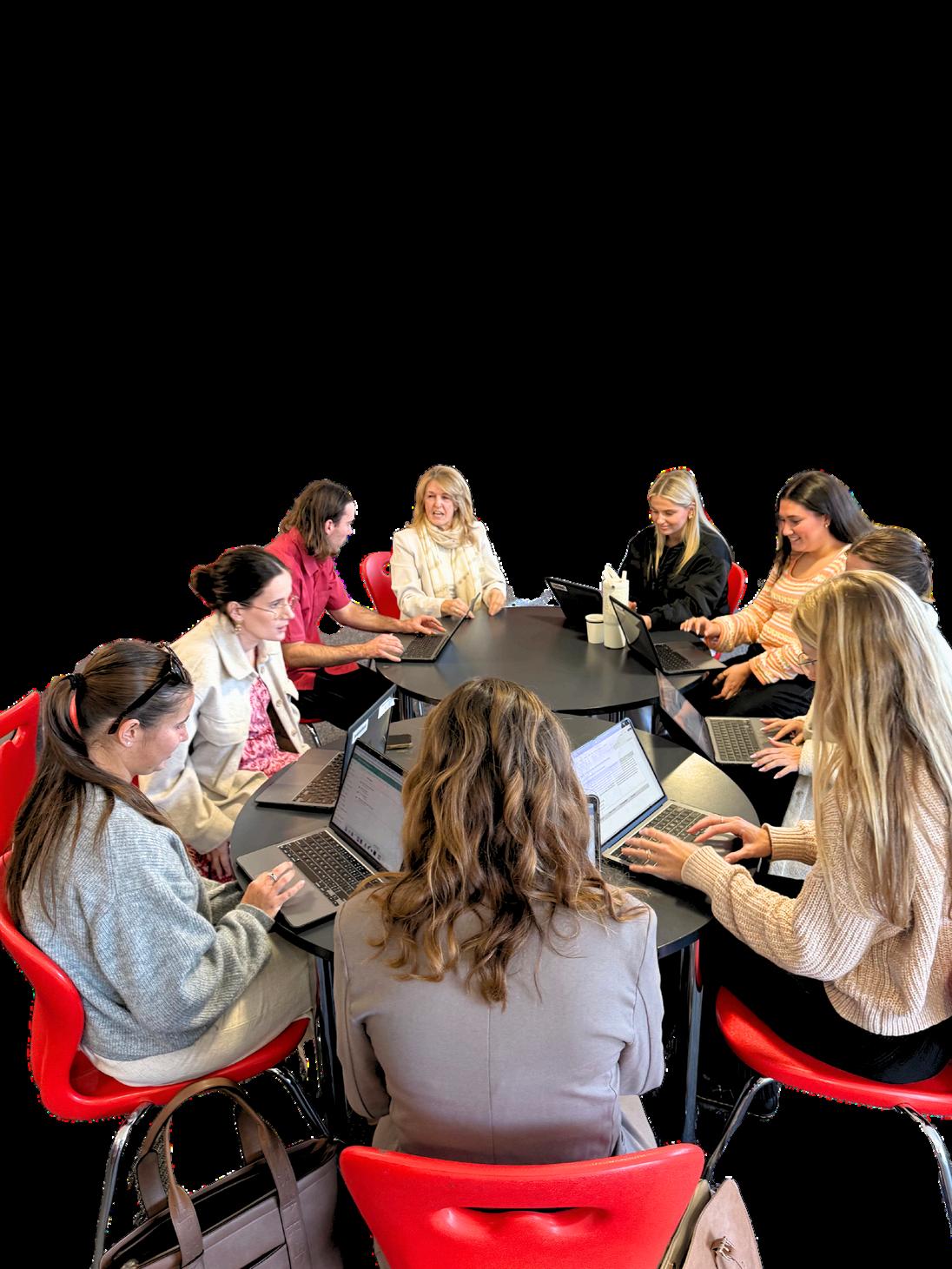



Why creating space for our trainee teachers to share their stories matters more than we might think.
Coffee lover. Fresh out of high school socialite. Part-time musician, part-time dad. A churchgoer. Unpaid youth leader and professional amateur oncea-month surfer. Mum of two kids and a dog that was never hers but is now her ‘best friend’. Teacher, old or young. Introverted bookworm. Super soccer star or the next Steve Smith. Brother, sister, aunty, uncle, daughter, son. A good friend. Christian.
As you can see, the trainees at the St Philip’s Teaching School are diverse and multifaceted, living kaleidoscopic lives of relationships, responsibilities, passions. We jam our buckets with so much – so much that is good, meaningful, important – but within this bustle and hustle that we call life, it can be easy to lose moments of calm, clarity, and connection.
“For Christ Jesus hears them, is concerned for them, his people, and is moved with compassion alongside them in their struggles and sorrows. ”

I wonder if any of these words jump out at you? At least four of them, in part or whole, describe every trainee at the St Philip’s Teaching School.
In that case, what about…
Night-owl-morning-bird-I-sleptthree-hours-last-night-but-I’vehad-coffee. Weary dad, struggling to make ends meet while working two jobs and studying full time. Student teacher who sneaks a cry in the corner when they think no one is looking. Busy. Stressed. Tired. Breathing in rubrics and grades, breathing out report comments. Always alone. Emotionally drained people pleaser who keeps on giving because everyone needs to be happy… right? Just too many uni assessments.
I daresay a few of these have felt familiar too. But did anyone know?
That is the beauty of Thursday afternoons at the Teaching School: time to Connect. Each trainee, purposely placed in a group of guys or girls led by one of their own, starts the afternoon enjoying a chance to talk and share and pray with one another. Often with warm coffees in hand, seated around a table, or soaking in the sunshine springing from the soft lawn, our trainees during Connect time gather for an essential moment of togetherness – a break from the restless throng born amongst the chaos of our many commitments. Too often, this time of community within the tertiary and traineeship space is neglected.

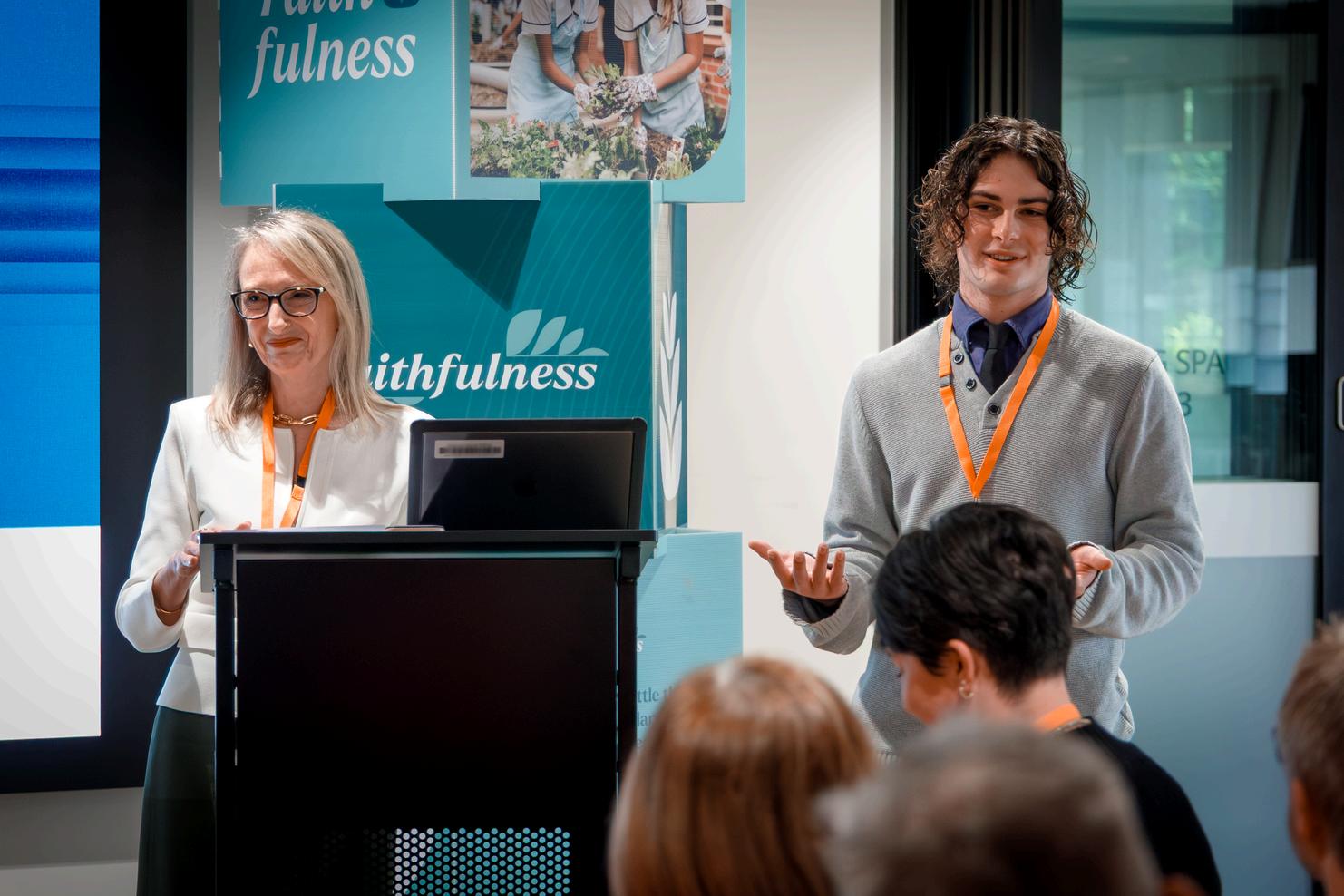
What I love most about Connect is that it provides a place and platform for our trainees to share their stories, through prayer and through chatter. With a backdrop of joyous laughter, or shared silence and empathy, these stories are powerful, uniting. The asking and telling and listening and relating ties a knot in the shape of a messy, broken group of imagebearers; here, they flourish as people made by our relational God, fully known, fully loved.
“With a backdrop of joyous laughter, or shared silence and empathy, these stories are powerful, uniting. The asking and telling and listening and relating ties a knot in the shape of a messy, broken group of imagebearers; here, they flourish as people made by our relational God, fully known, fully loved. “
The Teaching School movement around our nation is growing. Our hubs are growing, our circles are growing, our opportunities in schools to be both student and teacher are growing. And growing with them are many moments of satisfaction and success and their sticky co-partner, trials and hardship; both are an undeniable part of our world.
And so I ask you, whatever position you are infriend, mentor, colleague, peer, teacher, student, director, principal – are your trainees known? Known not only for their delights but also for their downfalls. Do they have the space and place in community to stop and share and be heard? Are they missed? They should be. For Christ Jesus hears them, is concerned for them, his people, and is moved with compassion alongside them in their struggles and sorrows. Our Thursday mornings are a reminder of his loving grace, made alive in the blessing of community, bringing hope to our trainee teachers so that they might bring hope to generations of students to come.
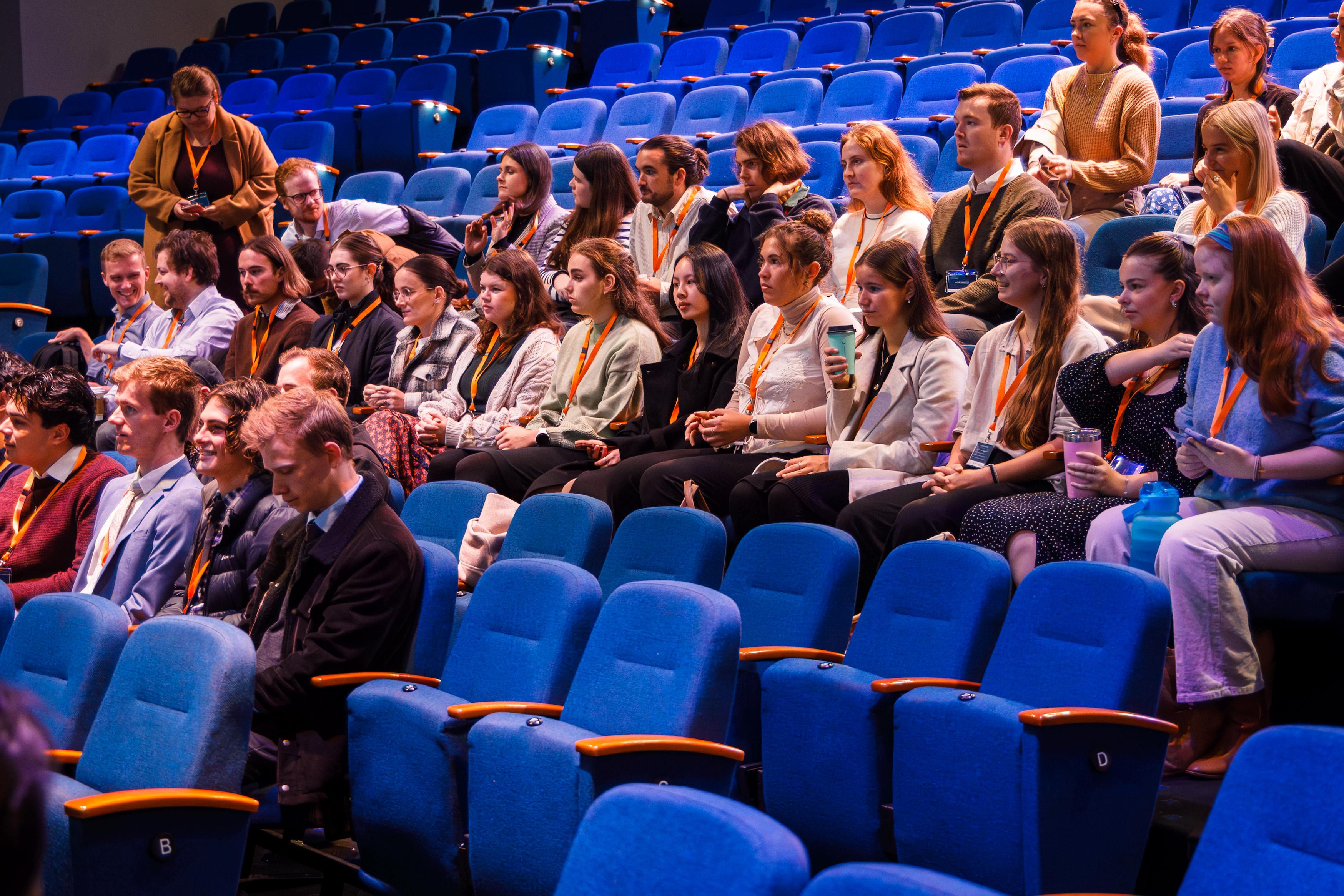
“For everything that was written in the past was written to teach us, so that through the endurance taught in the Scriptures and the encouragement they provide, we might have hope.”
ROMANS 15:4
There’s something quietly beautiful about teaching when it’s more than content delivery, when it becomes a formative, reflective, deeply Christian act. At its best, teaching shapes not only students' knowledge but their hearts, habits, and hopes. And in a world rushing toward efficiency and outcomes, Christian educators are called to slow down and teach with wisdom, intention and hope.
TG21 is an approach to reading the Bible drawn from Dr Rod Thompson’s Birth, Battle, Build, a text we are using in the SPCC Teaching School this year. It encourages us to engage with the Bible in a way that forms both our own understanding and our teaching practice.
TG21 STANDS FOR:
Begin with Scripture. Dwell in it. Don’t rush to the “point” or a quick application. Let the richness of the text speak in its own voice.
TG21 isn’t a neat formula, it’s a rhythm. A way of thinking that keeps Christ at the centre of both our learning and our leadership in the classroom.
When we practise TG21 regularly, we’re not just preparing devotions or Christian Studies lessons. We’re forming the kind of spiritual reflex that sees every lesson — Maths, English, Science, Art — as a space where God is present and speaking. TG21 reminds us that the Bible is not a decorative extra to our day, but a foundation that reframes how we see every student, every topic, every moment.
So let us return to the text. Let us listen for the Gospel. Let us lean into the needs and questions of the 21st century. And let our teaching be an echo of God’s voice — steady, thoughtful, and full of grace.
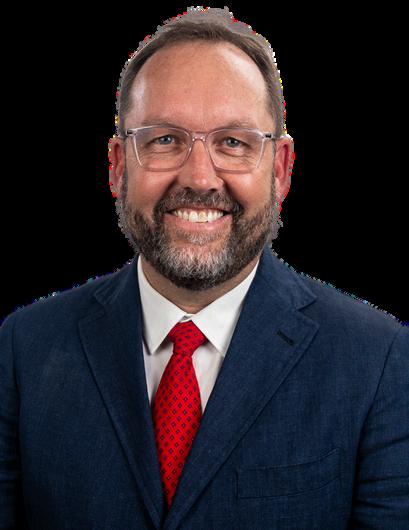
MATTHEW STACKHOUSE
St Philip’s Christian Education Foundation, LEAP Year Coordinator and Christian Spiritual Formation Coordinator The Author

Ask, how does this text bear witness to Jesus? What does it reveal about the good news — the life, death, resurrection, and reign of Christ?
GOSPEL 21ST
Reflect on the implications for life today. How does this shape the way we teach, the way we respond to students, the culture of our classroom?
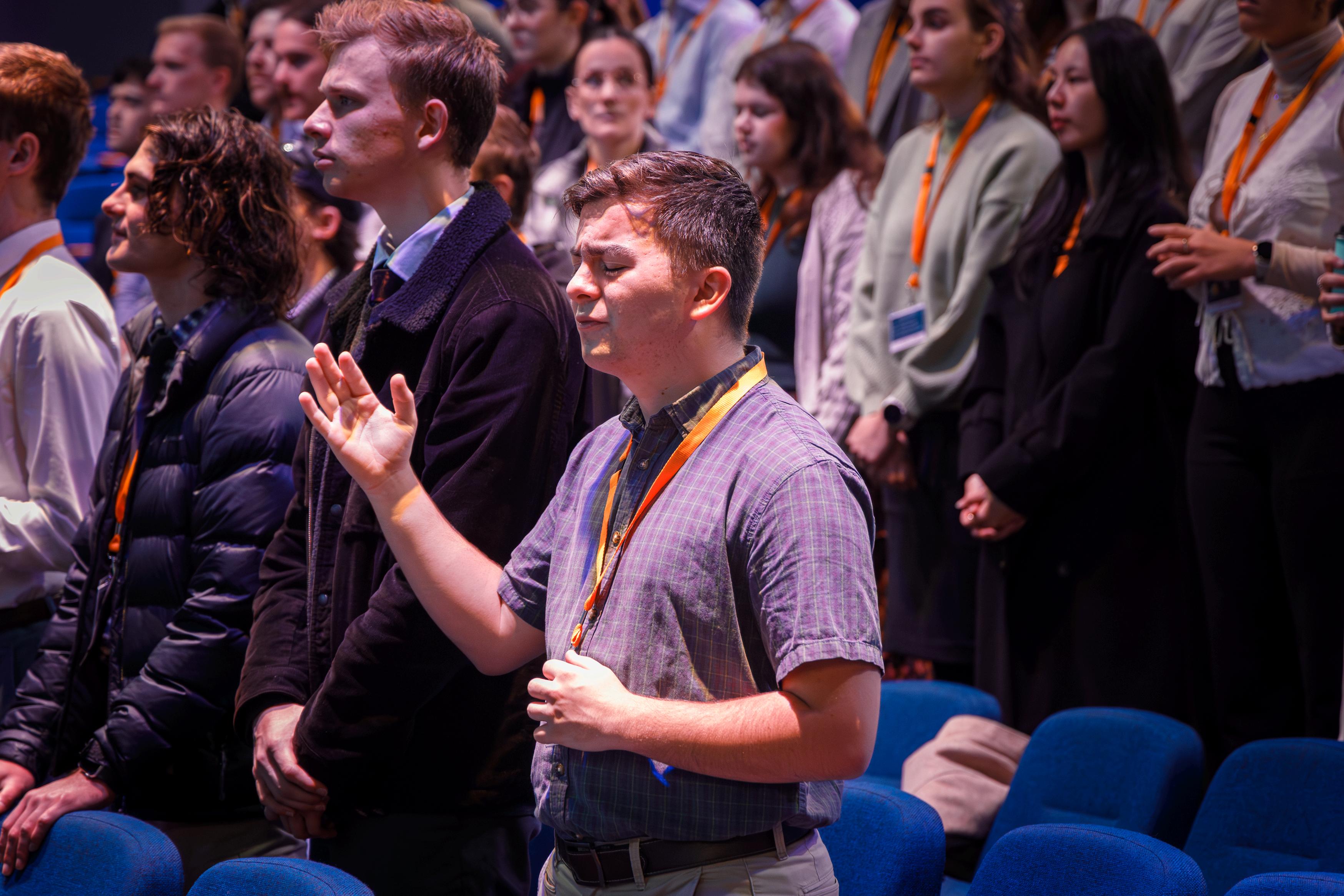
We asked our students what they thought of their Teaching School Trainee Teachers. Here is what they said:
“I love how he makes learning fun.”
KORA, YEAR 4
“My teacher is generous, thoughtful and respectful ”
BEAU, YEAR 2
“Thank you for teaching us to never give up on our dreams ”
LYLA, YEAR 3
“I admire every quality of my teacher. Like, a lot. Her kindness, her patience, her compassionate spirit.”
JEFF, YEAR 7
“My teacher makes me feel really under-stood, really seen.”
QUAYLAH, YEAR 12
“I like that she taught me how to be the best version of myself ”
DIEGO, YEAR 7


“Thank you for your amazing teaching style, your kindness, your servant heart ”
XAVIER, YEAR 12
“There was one time in maths that I didn't really understand. Thank you for sitting with me and helping me understand.”
LILY, YEAR 10
“She's so nice and she always is kind to us “
ALASKA, KINDERGARTEN
“She told us to never give up, and she gave me confidence.”
ZAHLI, YEAR 3
“Thank you for seeing the potential in every student and knowing exactly what we need to be the best that we can.”
CHARLOTTE, YEAR 12
